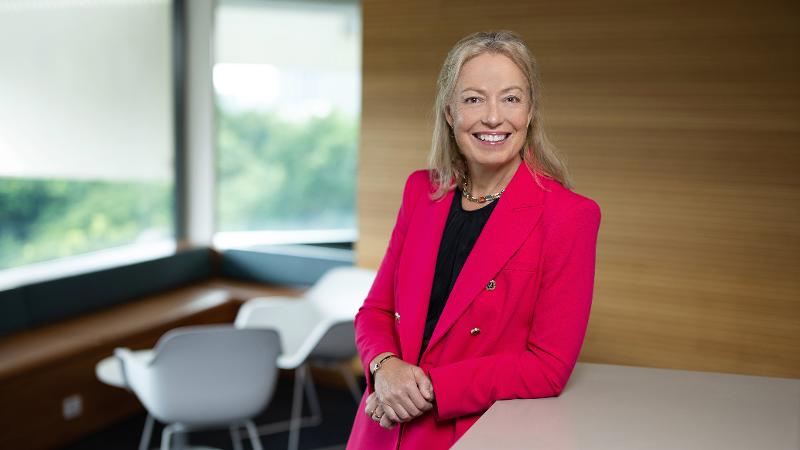
Mega-events like the Olympic and Paralympic Games come with values and community benefits that are broader than just sport, says Brisbane 2032 Organising Committee Board director Professor Sarah Kelly, who has joined QUT as Head of the Graduate School of Business.
Professor Kelly started at QUT in April and leads the school that is responsible for the university’s highly ranked MBA and Executive MBA programs, and corporate education.
It’s a busy role that will co-exist with the tourism and sports administrator’s three other major positions in Queensland – she’s an independent director on the Brisbane 2032 Organising Committee Board, deputy chair of the Brisbane Lions AFL Football Club, and deputy chair of Tourism and Events Queensland.
An expert in sports law and the business of sport, and a former commercial lawyer, Professor Kelly holds a PhD in marketing, an MBA and degrees in law and commerce, and has taught marketing and law across MBA, executive education and undergraduate programs at UQ.
She also mentors elite female athletes including swimmer Cate Campbell and Hockeyroos player Morgan Gallagher through the Minerva Network of businesswomen, which she co-leads in Queensland with QUT Chancellor Ann Sherry.
Professor Kelly said she was pleased to be joining QUT at such an exciting time in the ‘green and gold decade’ of sports events leading up to the 2032 Games, and all the benefits it would bring Queensland and Australia.
“The 2032 Games is what we classify as a mega-event,” she said.
“Global movements like the Paralympics and Olympics come with whole value systems that encompass the countries participating, the athletes, the volunteers, and the communities where they are held. The events showcase these values through sport and can translate them into enduring economic and social impacts.
“They are values such as diversity and inclusion, excellence and commitment, leadership and fairness, and sustainability.
“As a host, it’s important that we look at what these values mean for the broader community, how we can enact those values and how they can be a burning platform to instigate positive change in our community and foster a sense of belonging for all.”
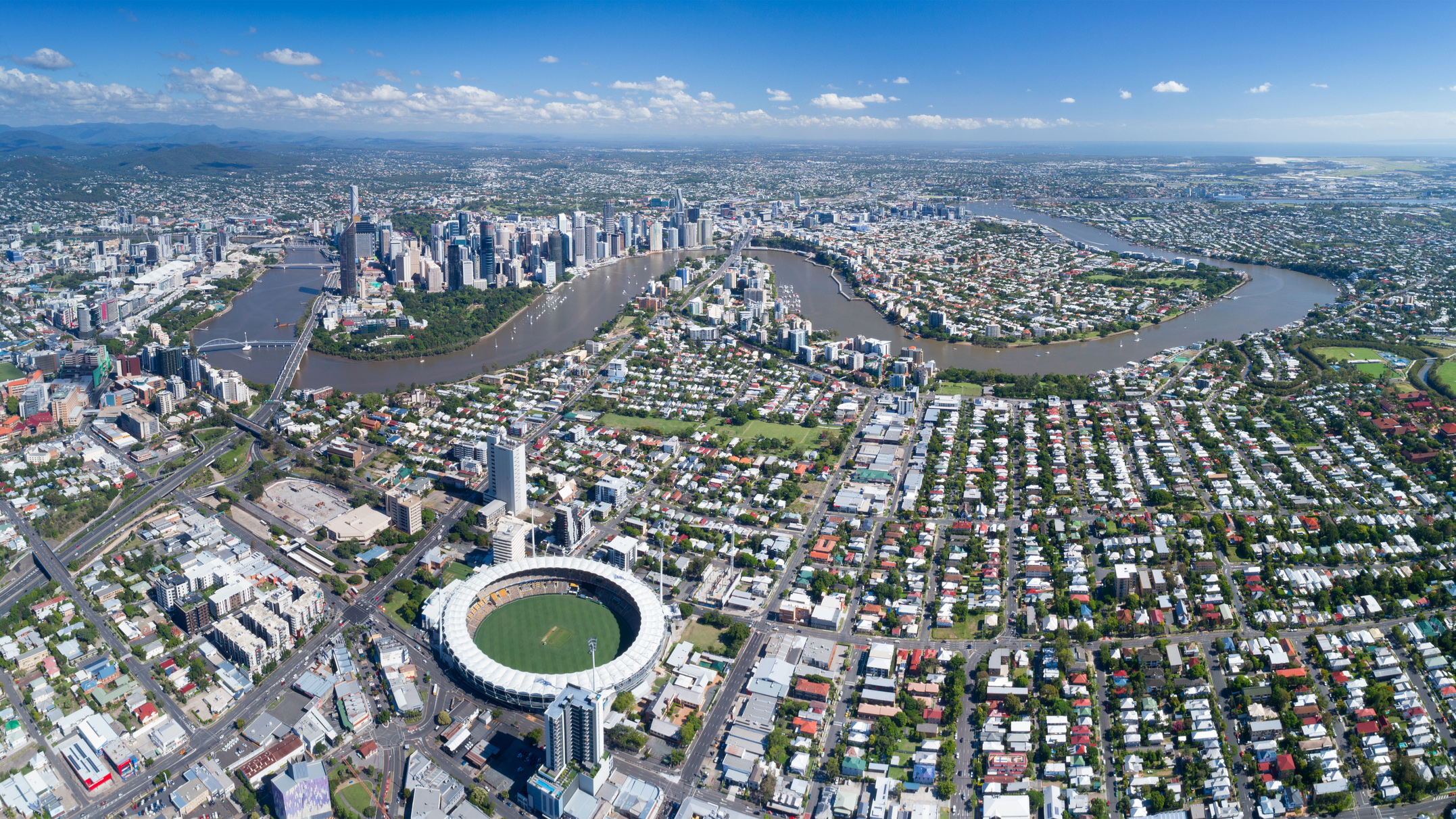
Professor Kelly said Brisbane 2032 would leave a legacy that would go beyond world-class sporting infrastructure.
“We will see cultural and wellbeing legacy outcomes,” she said.
“One of the big outcomes that 2032 is hoping for is increased accessibility across our region, which will benefit para-athletes and other citizens and tourists who may find accessibility difficulty, including our aging population.
“It’s an area QUT can help with, as our university can engage in research to assist with enhancing accessibility across the region, through urban and infrastructure design, assistive technology and innovation to connect and engage people of diverse backgrounds.
“We can also build a legacy story as an organisation in areas like staff and student well-being, inclusion and diversity, and embedding Indigenous cultures in our university and our unique location in Meanjin. QUT is already outstanding in its positioning as an innovative research and education powerhouse, so the opportunities to scale our industry, community-relevant DNA over the next decade are significant.
“The Games also give QUT and the region an opportunity to build a legacy in the Pacific.
“We can build strategies around education and training for Oceania, and devise courses, programs and training for coaches, athletes and sports administrators across Oceania. There are also opportunities for enriching students and faculty learning, research and experience through immersion in the Pacific.”
Professor Kelly said Australia had a history of using sport to bridge communities.
“I see that through my involvement with the AFL and Brisbane Lions too, particularly in the local communities, and multicultural partnership like Multicultural Australia,” she said.
“We welcome many new Australians, and their children and families, to this country and into our communities through sport.
“Women’s sport is also a great example of positive benefits across the wider community flowing from sport. The power of women’s leadership and strength demonstrated in sport is resonating beyond the field and pool to influence business and sustainable development goals like gender equality.”
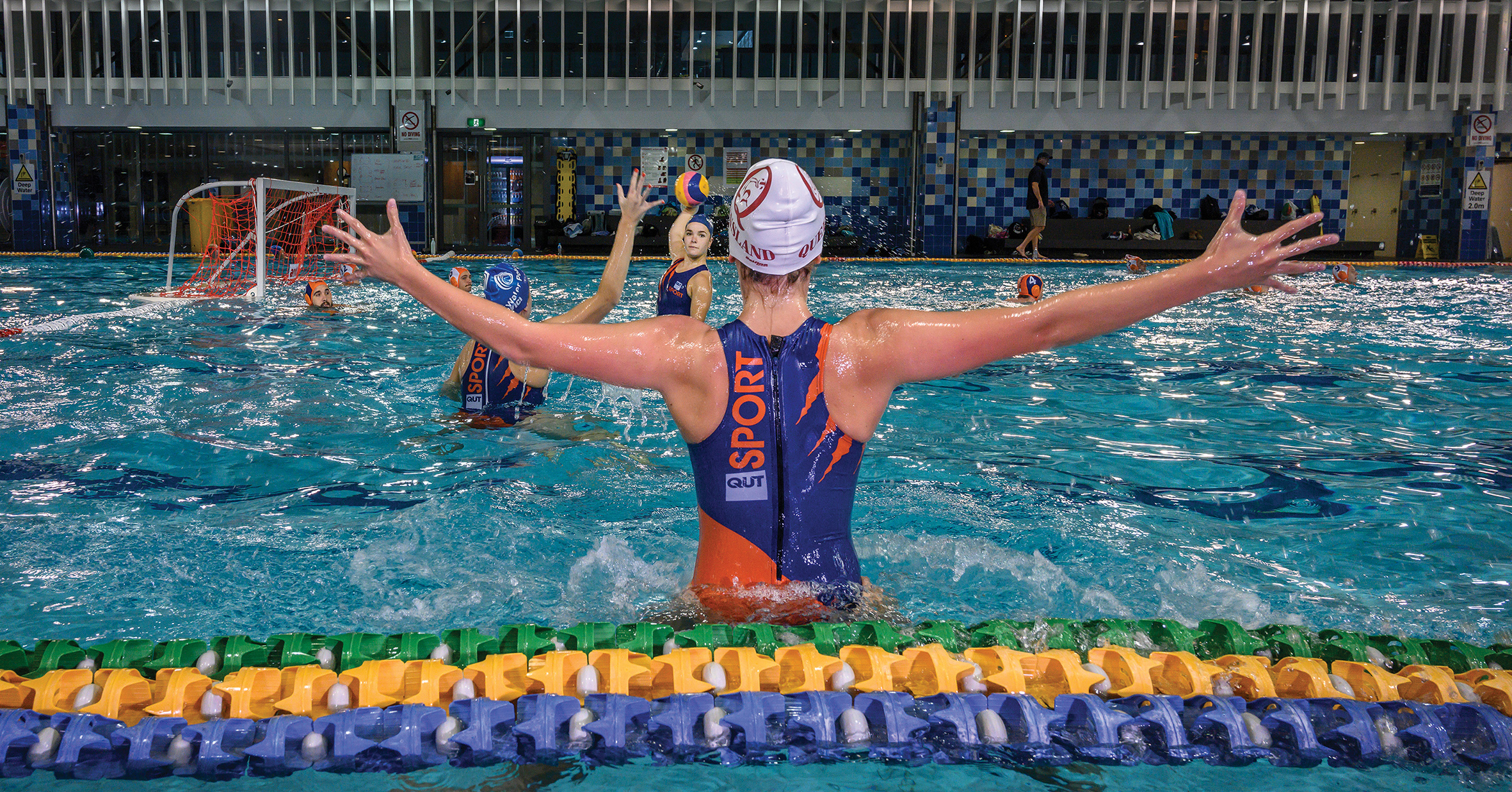
Brisbane is also benefitting from the International Olympic Committee’s ‘New Norm’ policy of announcing host cities 11 years in advance (rather than the previous seven years), which allows local officials more lead time to plan and build infrastructure and cover expenses.
“We have a longer runway leading to the event, which gives us capacity to save expenses by integrating the event into existing urban and master plans and making it taxpayer neutral,” Professor Kelly said.
“One of the key deliverables is for a zero carbon Games in 2032, so we’re going to need a whole lot of leadership, innovation, science and governance on how this can be realised. Education and research, in close partnership with community, government and industry, will be central to this mission. QUT is already doing really well and embedding sustainability in our work. Carbon literacy is really important for us and stakeholders.
“Queensland is also already seeing the benefits in tourism and trade.
“Research around ‘destination brands’ shows the benefits start as soon as you announce your intention to even bid for a mega-event. Brisbane went to the top of Google searches for cities in the world when it was announced we’d won the bid.
“Since that announcement we are on the radar internationally for trade and investment, and a magnet for new headquarters, talent, and tourists. We’re already seeing bookings for other significant events, trade conferences and sporting events.”
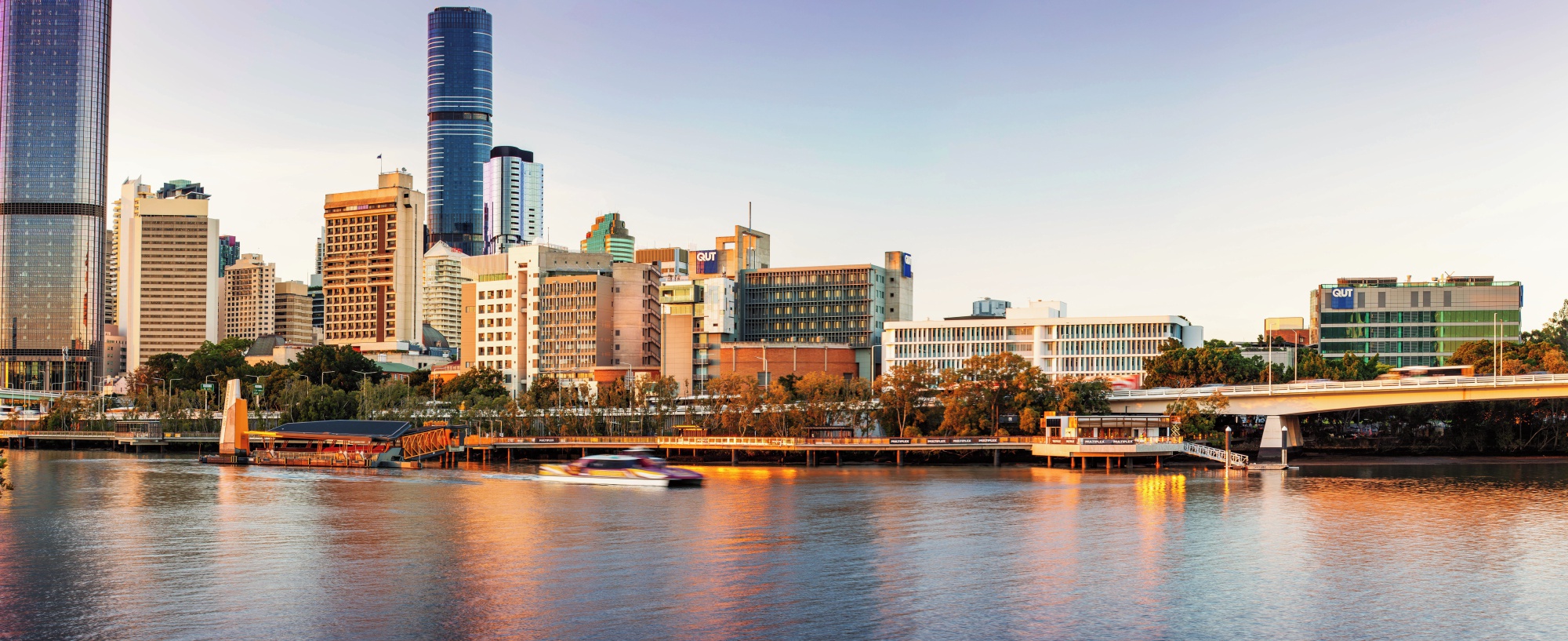
Professor Kelly said being the 2032 host city was also a drawcard for international students and corporate and institutional collaborators for QUT.
“There’s city-to-city diplomacy we can engage in with other host cities like Paris, Tokyo and Los Angeles – we can build stronger relationships there and more exchange opportunities for our faculties and students,” she said.
“And QUT already has partnerships with international institutions and companies such as Cisco – they are responsible for the technology underpinning many mega events and smart stadiums around the world.
“MIT is another of our global collaborators, and we share a lot of alignment in areas like sports technology, investment in enterprise and entrepreneurship mindset and sports analytics.
“We also have tremendous current students and sporting alumni, including former and existing Olympians and Paralympians, which is something we will continue to build on.
Professor Kelly said the calibre of QUT’s research and national and international partnerships was something that had drawn her to the university.
“We’re really good at interdisciplinary research and partnerships, particularly around sports technology, allied health, the business of sport and sports analytics,” she said.
“That positions us very strongly to really elevate our research and translate and curate it for the benefit of external partners that will need this kind of cutting-edge knowledge and training and education going forward.
“Queensland is going to need to train up people in this sector, we’re going to need to scale start-ups and SMEs (small and medium enterprises) so that they’re ready for market in 2028 with some of their innovations. QUT can greatly assist and support innovation and commercialisation through our research and education strengths and close partnerships with industry and government.”
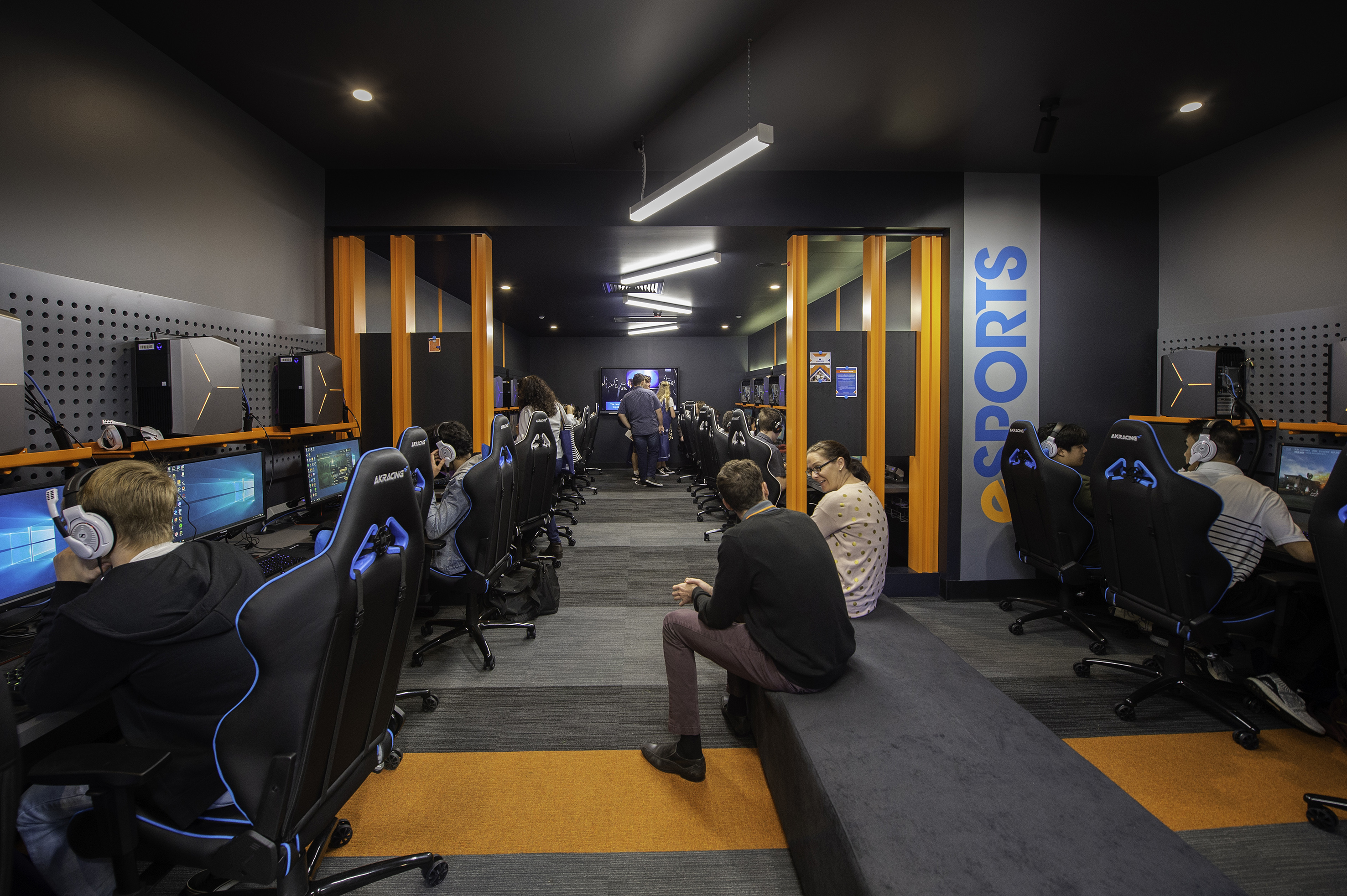
Sports innovation also means an evolving list of what constitutes an Olympic or Paralympic sport.
Esports hasn’t made the cut for Paris, but what about Brisbane?
“Well, QUT is very well known for its esports teams and esports research, and I think esports could be considered for Brisbane … but we’ll have to wait and see what happens,” said Professor Kelly, who has published several papers on esports, ranging from its governance to its impact on lifestyle behaviours.
“Esports is now a medalled event for the Asian Games [held this month in Cambodia].
“One of the great things about esports is that it is really inclusive – you can have Paralympic athletes, neurally-diverse athletes, and it’s gender equal.
“Esports allows kids to participate and feel belonging when they may be sick in hospital or isolated geographically. It creates and hones skills around problem solving, teamwork, and it’s a global, borderless activity.
“Esports produces some of the most popular content among Gen Z and Alphas coming through and it’s a way to engage them and build skills for employability.
“There’s also the innovation side of the sport, which is another area QUT excels in – the IT, creative design, marketing, media and technology around esports involves many disciplines.”
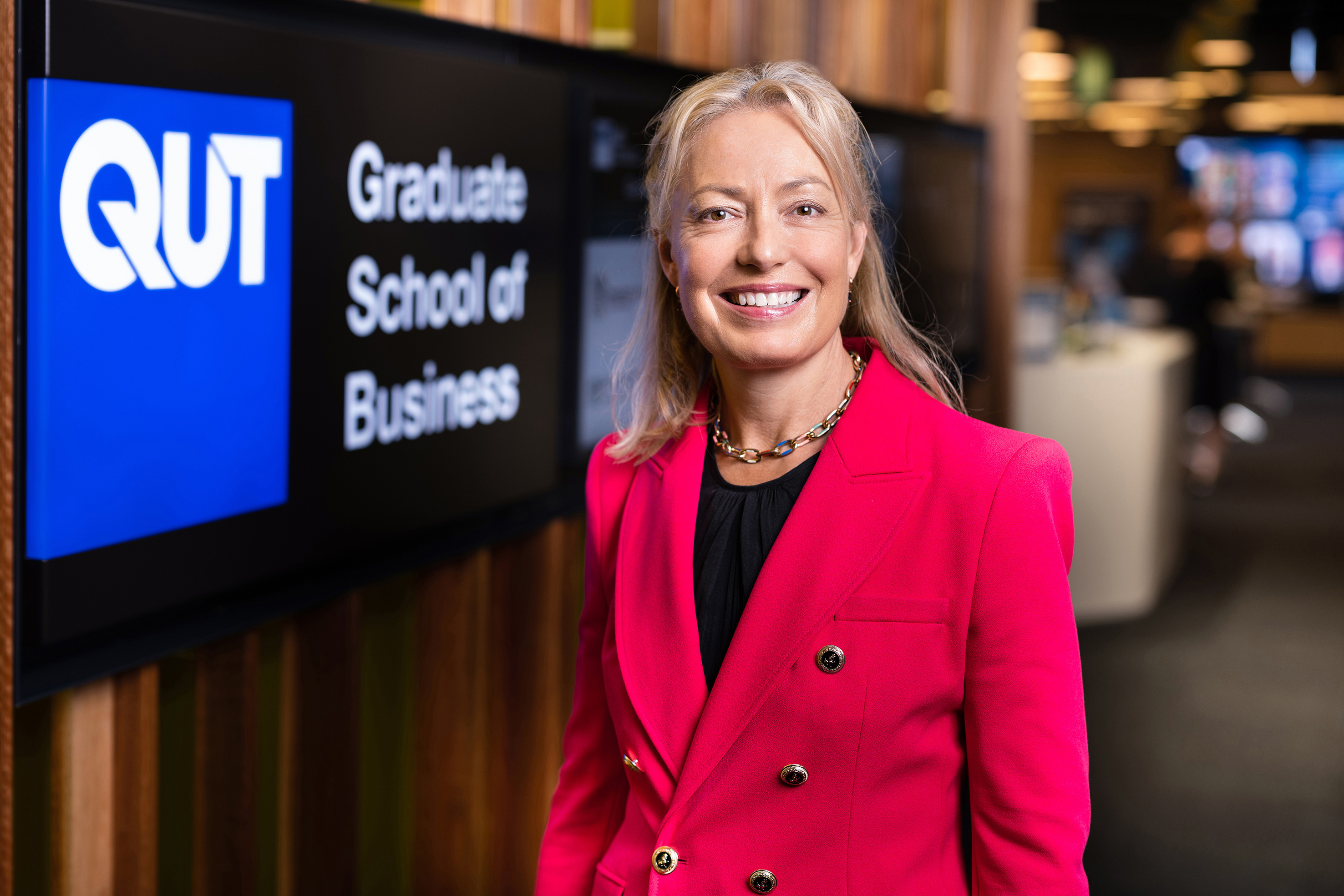
Professor Kelly said sports innovation, sustainability and managing complex events were among the QUT Graduate School of Business’s expert areas over the next decade.
“This school is a key portal for the university and faculty’s external engagement,” she said.
“We are well situated to invite external partners, government, and not-for-profits back into the university to problem solve, collaborate and access our latest research and education.
“The school has already done very well in areas like leadership – such as our Pathway to Politics, Emerging Leaders and Public Sector Management programs – and our MBA and Executive MBA are outstanding in how they are co-created through industry and our star academics.
“We will also continue to build micro-credentialled courses and short courses, which will include areas relating to the business of sport, governance and leadership in complex environments, and sustainability and ESG [environmental, social and governance]. We are embedding the sustainability development goals across our curricula and ensuring a diverse range of students can engage in life-long learning through the school.”
Ask Professor Kelly about her biggest achievements and she is quick to nominate her four adult children.
“I’m really proud of them and the people they have become and that we have them in our lives – they’ve grown into independent, positive young adults,” she said.
“As an academic, it’s also a real privilege to impact students and their careers and their outlook on life. I love working with students who appreciate the value of knowledge and where it can take them … I don’t take that for granted. I love being an educator.
“I’m also really proud of the fact that I’m on the board that helped lead the first national women’s licence for the Brisbane Lions and the growth and success of our AFLW team to a premiership and the inspiring of growth in women’s participation across the nation.
“And in tourism, it’s been great to be part of the board that’s helped with Queensland’s recovery from the pandemic. We are the number one destination for domestic travel which is fantastic … I’m very proud of Brand Queensland!”
Professor Kelly was awarded a Medal of the Order of Australia in 2021 for service to sports administration and to tertiary education.
QUT Media contacts:
- Mechelle McMahon, media@qut.edu.au
- After hours, 0407 585 901 or media@qut.edu.au


